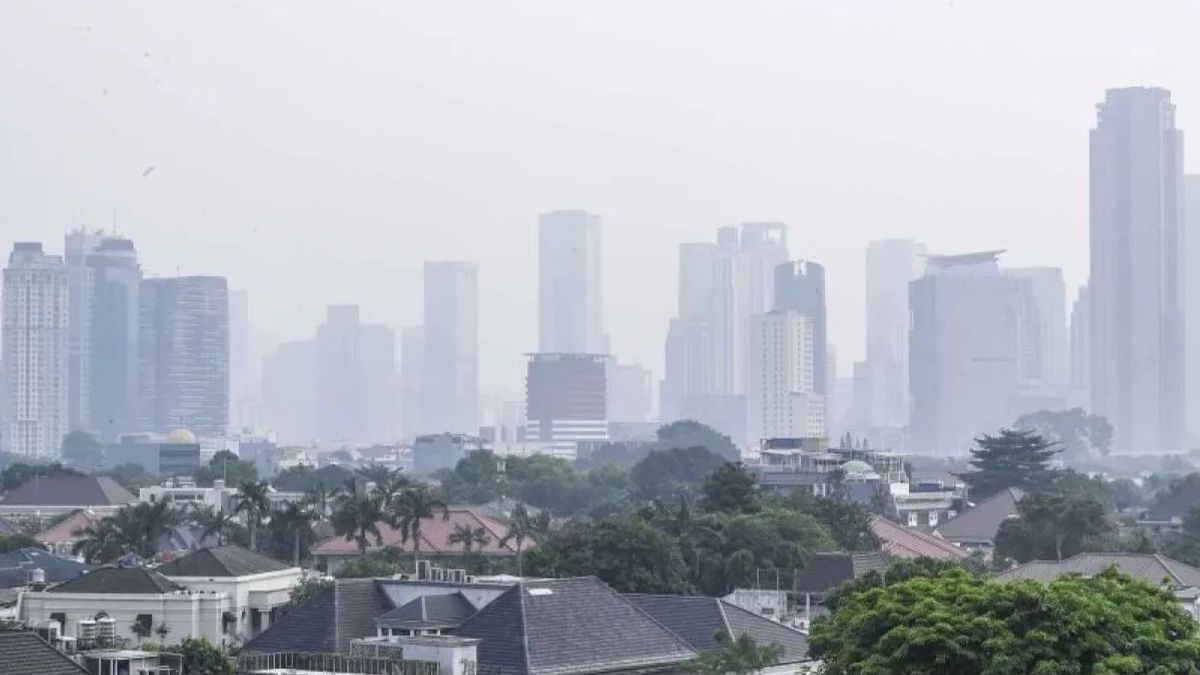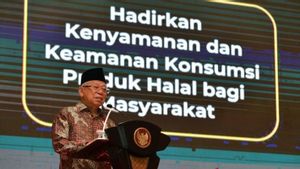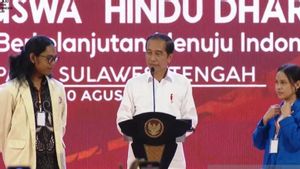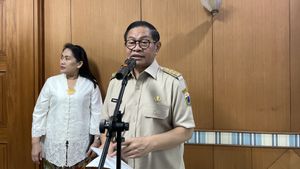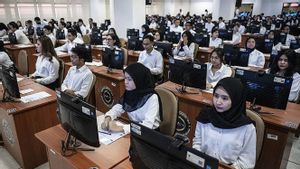JAKARTA - Minister of Health (Menkes) Budi Gunadi Sadikin revealed the danger of pollutants with a particulate matter (PM) 2.5 which has set a maximum limit in the guidelines of the World Health Organization (WHO).
The Minister of Health revealed that WHO divides the pollutants into two parts, consisting of four gas-shaped pollutants consisting of ozone, nitrogen dioxide (NO2), sulfur oxide (SO2), and carbon monoxide (CO) and two PM 2.5 particles measuring 2.5 microns and PM 10 measuring 10 microns.
"The most dangerous thing is PM 2.5 because it is in the form of a very small particle, can enter the blood vessels, go down to the lungs," he said at the DPR Commission IX Working Meeting as reported by ANTARA, Wednesday, August 30.
Minister of Health Budi said PM 2.5 was a type of particle that became a reference for all countries with high air pollution in the world.
He said PM 2.5 was sourced from carbon burning, such as gasoline as a fuel for transportation, Steam Power Plants (PLTU), industries that require burning such as steel smelters, to burning waste.
"WHO gives the target, and the target is to calculate the levels per 24 hours and levels per year, so it is measured on average per year and per day," he said.
Previously, said Minister of Health Budi, WHO targeted a maximum limit for PM 2.5 air pollution at an average of 55 microns of grams per cubic meter (mg/m3) per 24 hours, and 15 m3 per year.
But now, he continued, WHO has just lowered its limit to an average of 15 micrograms per cubic meter per 24 hours, and 5 micrograms per cubic meter per year.
SEE ALSO:
Minister of Health Budi revealed that Jakarta, which is currently being hit by problems related to air pollution, has never been below this figure in the last three years.
"And none of the countries have changed their rules (related to air pollution)," he said.
The incident, he said, was closely related to the increasing number of respiratory diseases that were a burden on BPJS Kesehatan such as pneumonia, tuberculosis, ISPA, asthma, COPD, and lung cancer.
As stated by Minister of Health Budi previously, a number of these diseases spent a BPJS budget of IDR 10 trillion in 2022.
The English, Chinese, Japanese, Arabic, and French versions are automatically generated by the AI. So there may still be inaccuracies in translating, please always see Indonesian as our main language. (system supported by DigitalSiber.id)
